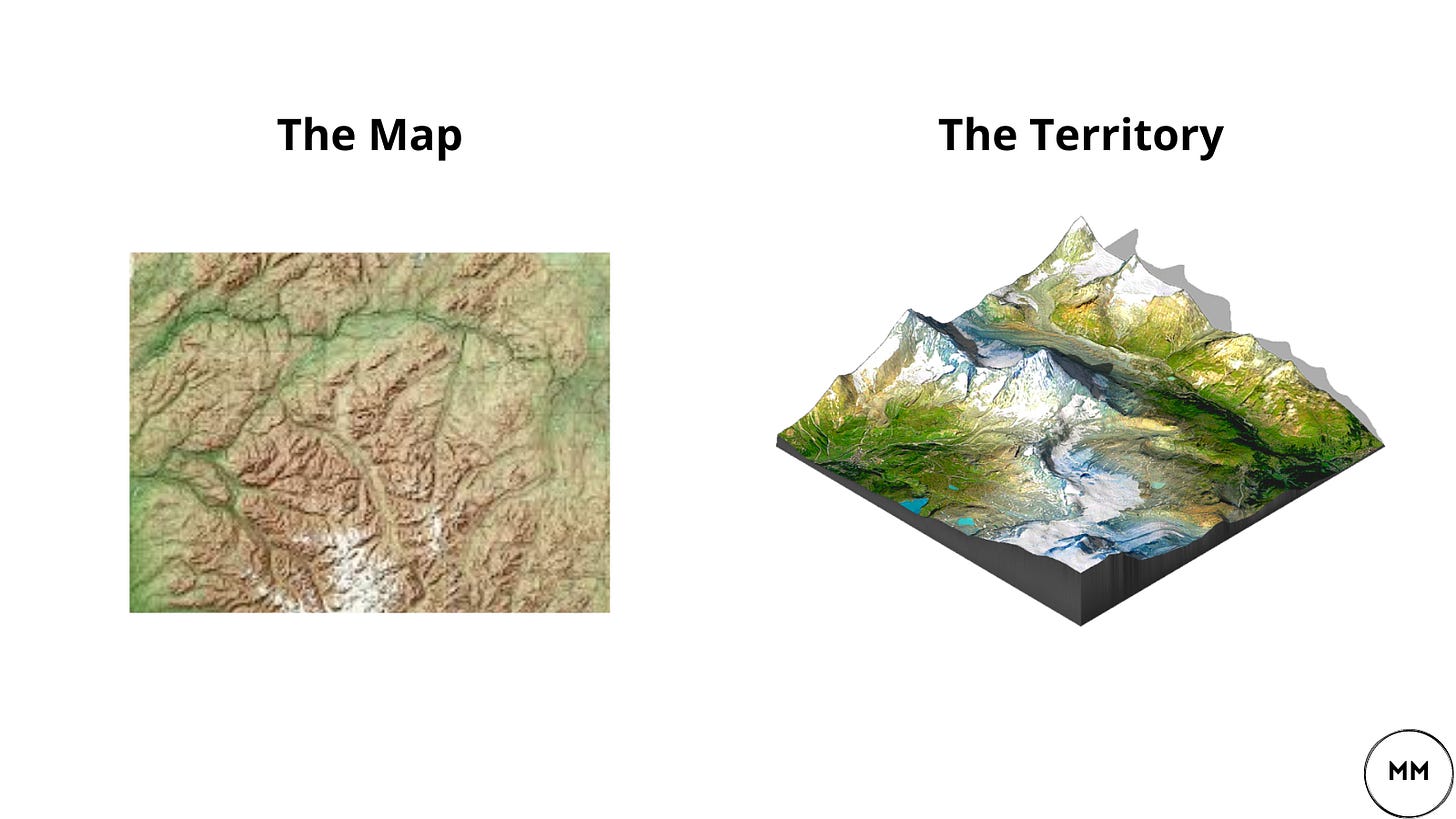“I have rivers but no water; forests but no trees; cities but no buildings. What am I?”
A map—and today’s topic.
Maps are useful but even the greatest ones are not perfect. Maps are a reductionist representation of a territory. If maps were to fully represent the territory, then they would no longer be a map.
Among other things, a map lacks a whole dimension and the elements (weather) of the territory. See where this is going…
The map is not the territory.
In the early 1930s, mathematician Alfred Korzybski, who developed the field of general semantics, presented a paper on mathematic semantics. While the paper is quite technical, he introduced the concept of “the map is not the territory” in his list of arguments.
“A. A map may have a structure similar or dissimilar to the structure of the territory
B. Two similar structures have similar logical characteristis. Thus, if in a correct map, Dresden is given as between Paris and Warsaw, a similar relation is found in the actual territory
C. The map is not the territory
D. An ideal map would contain the map of the map, the map of the map of the map, endlessly. This charateristic was first discovered by Royce. We call it self-reflexiveness.”
-Alread Korzybski
A map is necessarily flawed because it is an abstraction of reality.
A representation of reality is not the reality in its entirety. That is, an abstraction of something is not the thing itself.
“The menu is not the meal” - Alan Watts
Takeaways:
While maps and models are flawed; they are useful. We must be careful not to confuse a map for the territory itself.
The financials are not the company. The commercial is not the product. The spreadsheet is not the situation. Their profile is not their life. The story is not the truth.
To protect us from this, we must remember we don’t fully realize a model or map until we understand its limitations. Without understanding and respecting the limitations, we become susceptible to conflating the map with reality.
The map is not the territory.
Cliffhanger: What’s coming up in the next couple of weeks
On-Deck: Occam’ Razor: What razors, simplicity, and complexity have to do with better problem-solving.




